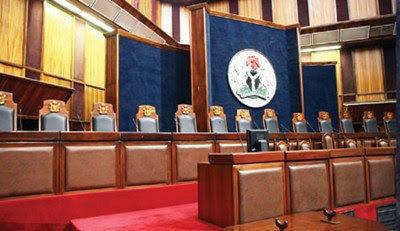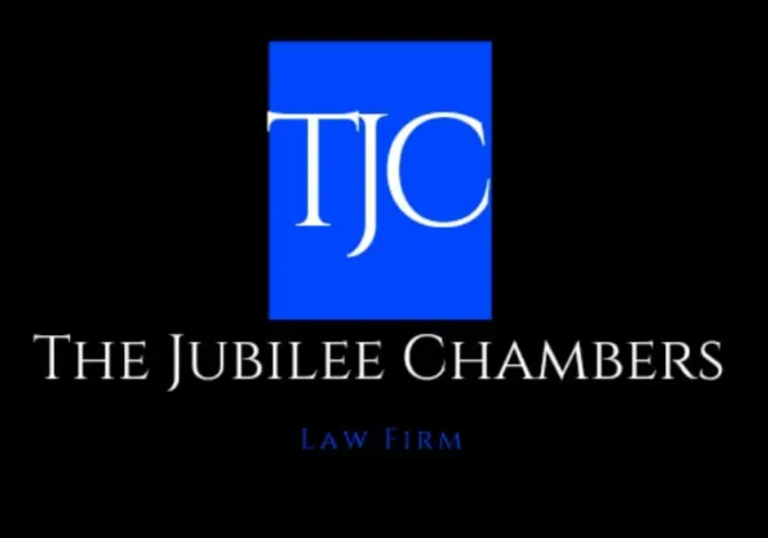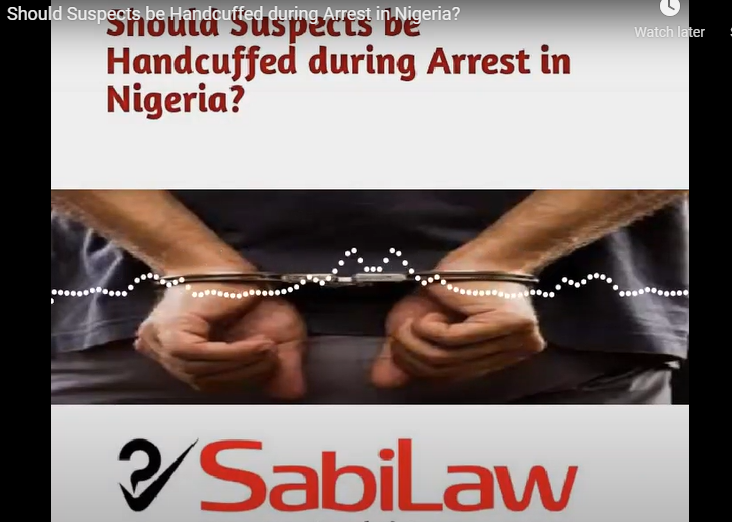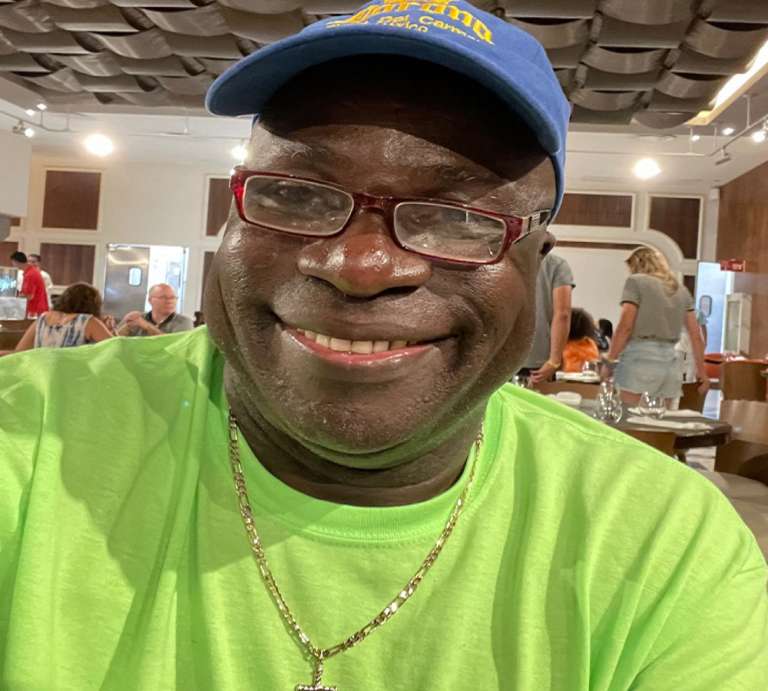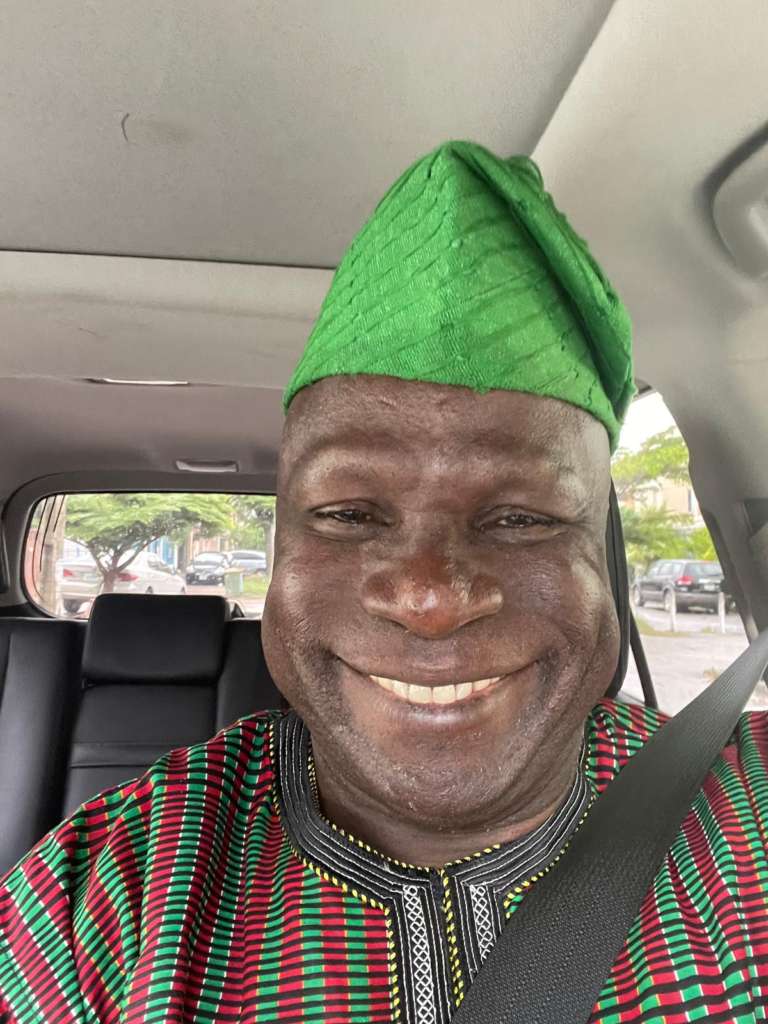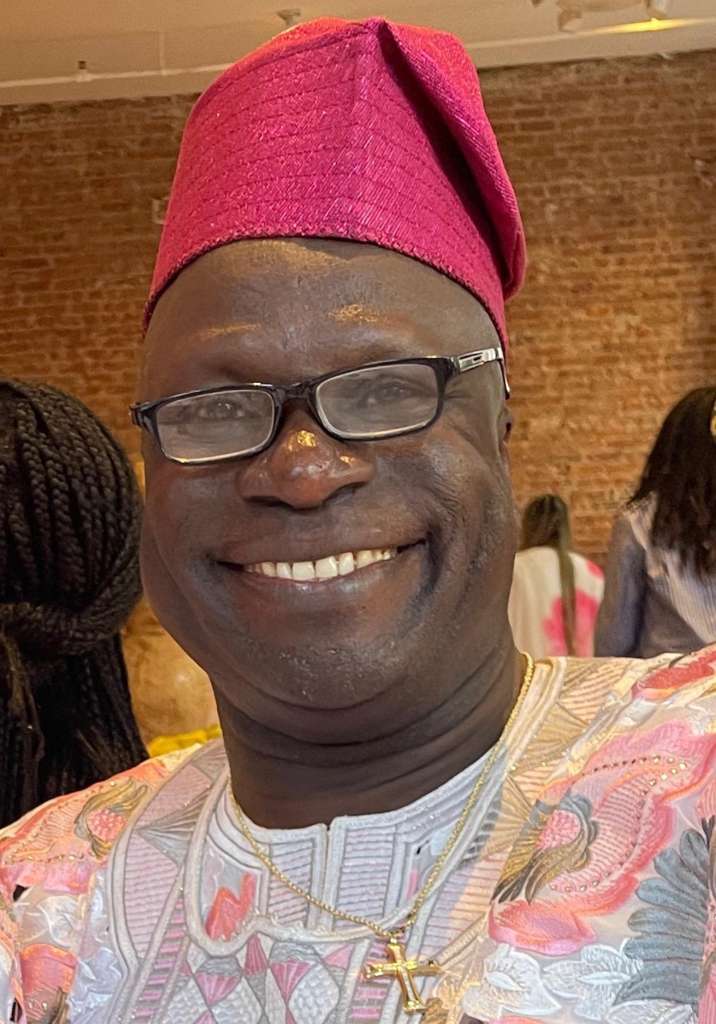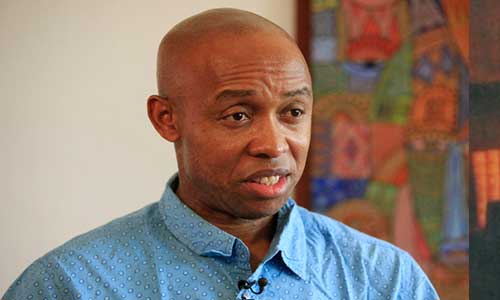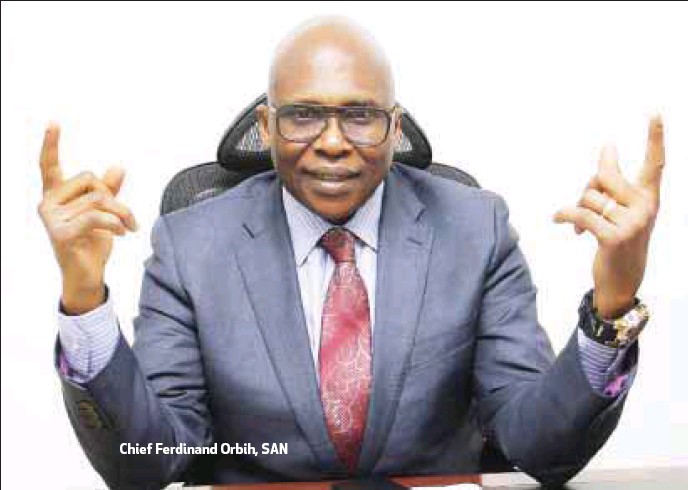COMPANY INCORPORATION
Every Company intending to carry on business in Nigeria must take all steps necessary to obtain incorporation as a separate entity in Nigeria and until so incorporated, the foreign company shall not have a place of business in Nigeria for any purpose other than the receipts of notices and other documents, as matters preliminary to incorporation.
A foreigner may choose to register a business name as a sole proprietor or partnership or he may wish to incorporate a Company with other foreigners or Nigerians, or he may wish to buy shares in an existing Company.
REQUIRMENTS FOR THE REGISTRATION OF A COMPANY IN NIGERIA
The body responsible for the registration of companies in Nigeria is the Corporate Affairs Commission (CAC). The following are the requisite requirements to register a Company with the Corporate Affairs Commission in Nigeria;
PERSONAL DETAILS:
The full names, addresses and occupations of the directors and every other person concerned in the promotion of the company, eg the subscribers.
NAME OF THE COMPANY:
A primary name and an alternative name will be required for preliminary search on the Directory of Registered Companies on the CAC portal.
PROHIBITED NAMES:
Certain names are prohibited and restricted by law. These are;
▪ Names which are identical with a Company already in existence/registered or nearly resembles that name as to be calculated to deceive.
▪ Names which contain the words “Chamber of Commerce” unless it is a company limited by guarantee.
▪ Names capable of misleading as to the true nature or extent of its activities or is undesirable, offensive, or otherwise contrary to public policy.
▪ Names which would violate any existing trade mark or business name unless the consent of the owner of the trade mark or business name has been obtained.
▪ The use of the following words is subject to approval by the CAC; Federal, National, Regional, State, Government, Municipal, Chartered, Co-operative, Building Society, Group or Holding, Bank, Insurance.
Upon name search and confirmation of availability of the said name on the CAC portal, an availability and reservation of name would be done. A name may be reserved by the CAC for a maximum period of 60 days pending incorporation.
TYPE OF COMPANY:
The Company to be incorporated may be limited by shares, limited by guarantee or unlimited. It may also be a private or public company whether, unlimited, limited by shares or guarantee.
SPHERE AND ADDRESS OF OPERATION:
The registered office of the Company must be situate in Nigeria. Every company registered in Nigeria must comply her appropriate laws and regulations.
CAPITAL:
Generally, the capital of a company connotes the totality of its assets including borrowed money, which is loosely called loan capital. Specifically however, the capital of a company refers to the share capital. The minimum share capital of a private company is N10,000.00 (25.77 USD) while a public company is N500,000.00 (1,288.36 USD)
SUBSCRIBERS:
These are persons who sign the Memorandum of Association (for a number of shares) and the Articles of Association. Their full particulars must be obtained. They have the capacity to form a Company and they must not be less than 2 and must together subscribe shares amounting in value to at least 25% of the authorised share capital.
MEMBERSHIP:
Membership of a company is made up of the subscribers who are deemed to have agreed to become members and whose names must be entered in the Register of members and also every other person who agrees in writing to become a member.
DIRECTORS:
Directors are the persons appointed by the company to manage the affairs of the company and need not be members of the company. Every company must have at least two directors. The number of the directors and the names of the first directors shall be determined in writing by the subscribers to the memorandum or a majority of them or may be named in the articles of association.
DOCUMENTS REQUIRED BY CORPORATE AFFAIRS COMMISSION (CAC) FOR COMPANY INCORPORATION
▪ Form CAC 1.1. Application for Registration
▪ Memorandum and Articles of Association
▪ Proficiency certificate (where applicable)
▪ Recognized form of identification (passport bio-data page, drivers’ licence or National Identity Card) for Director(s)/Shareholder(s) and Secretary
▪ Foreign Certificate of Incorporation and Board resolution for subscription to Nigerian company (where applicable)
▪ Residence permit of resident foreigners (where applicable)
▪ Stamp duty evidence of payment
▪ Evidence of payment to CAC (the fees to be paid for incorporation is dependent on the volume of shares to be registered).
A Company incorporation agent is required to put all the requisite documents together and duly attest to same in line with the extant statutory provisions in Nigeria.
THE MINIMUM SHARE CAPITAL REQUIRED FOR REGISTRATION OF A COMPANY BY A FOREIGNER
Every foreigner seeking to participate in Nigerian business by registering a company in Nigeria must register a company with the minimum of N10,000,000.00 (Ten Million Naira) (25,820.38 USD) authorized shares capital to be able to subsequently register with Nigerian Investment Promotion Council (NIPC). A foreign Company may join in forming a Company subject to the provisions of any law regulating the rights and capacity of foreigners to engage in trade or business in Nigeria.
EXEMPTION FROM REGISTRATION
A foreign company may apply to the Federal Executive Council for exemption from the requirement to register locally if it belongs to one of the following categories;
▪ Foreign companies invited to Nigeria or with the approval of the Federal Government to execute a specified loan project,
▪ Foreign companies which are in Nigeria for the execution of specified individual loan project in behalf of a donor country or international organisation.
▪ Foreign Government – owned companies engaged solely in export promotion activities and
▪ Engineering consultants and technical experts engaged on any individual specialist project under contract with any of the governments in the Federation or any of their agencies or with any other person, where such contract has been approved by the Federal Government.
HOW TO APPLY FOR EXEMPTION FROM REGISTRATION
An application for exemption is made to the Secretary to the Federal Government (SFG) setting out eight specified particulars and such other particulars as may be required by the Secretary to the Federal Government.
STATUS OF AN EXEMPTED COMPANY
An exempted company has the status of an unregistered Company. This provision does not affect the liability of a foreign Company to be sued by Nigerians in Nigeria or their right to sue Nigerians in Nigeria.
TAXES APPLICABLE TO COMPANIES
A business is usually profit-oriented and just like any other working individual or company, it is expected that the Company will pay taxes. Some of the applicable taxes for a Company operating in Nigeria include the following:
COMPANY INCOME TAX:
This is the tax levied on the income of the business. Company income tax is charged at 30% of the profit earned by the Company after all allowable deductions for a Company with more than N100 Million Naira annual turnover. The tax is charged at 20% for a company with a turnover between N25 Million and N100 Million.
VALUE ADDED TAX (VAT):
It is payable by the customer and is imposed on the supply of goods and services. The VAT is currently charged at 7.5%.
CAPITAL GAINS TAX:
This is 10% tax imposed on capital arising from sales, exchange or any other dispositions of properties. It is charged to the chargeable assets of a business. It is triggered when an asset is sold.
STAMP DUTIES:
This is a tax payable on instruments. The rate of this tax is dependent on the document and the value of the transaction on the face of it. It is usually charged at a fixed rate and ad valorem.
WITHHOLDING TAX:
The withholding tax is usually charged at the rate of 10% to 5% of the payable sum, depending on the type of payment. The withholding tax is normally deducted at source when payment is to be made to the beneficiary. It is an advance payment of income tax.
INDUSTRIAL TRAINING FUND:
The tax is charged at 1% of the company employees’ payroll. It is only applicable to a company with a minimum of 50 Million Naira turnover or having more than 5 employees.
NATIONAL SOCIAL INSURANCE TRUST FUND (NSITF):
The NSITF is also charged at the rate of 1% of the company employees’ payroll. The NSITF payment is not actually a tax, but a form of mandatory insurance for the employees of all companies operating in Nigeria.
EDUCATION TAX FUND:
This tax is applicable to all companies operating in Nigeria. It is levied at 2% on the profits of companies operating in Nigeria.
PETROLEUM PROFITS TAX:
This tax is applicable to only companies engaging in the exploration and production of crude oil. It is charged at the rate between 50% to 85% of ascertained profits after deductions of all operational expenses.
The duty of collecting tax is vested in the 3 arms of government. The Federal Inland Revenue Service (FIRS) is the body in charge of the taxes payable to the Federal Government. The taxes payable to the State Government is paid to the State Boards of Internal Revenue (SBIR). The Local Government also administers some levies, which they collect through various Councils within Nigeria.
TAX IDENTIFICATION NUMBER (TIN)
The Taxpayer Identification Number (TIN) is a unique number allocated and issued to identify a person (individual or Company) as a duly registered taxpayer in Nigeria. Taxpayer Identification Number (TIN) is to be used by that taxpayer alone. Registration for tax purposes is a legal obligation of every person who is required to pay tax in Nigeria. The law stipulates that upon incorporation, every Company is to register for tax purposes. Upon registration, the Company acquire its TIN. The Joint Tax Board has an improved electronic system for obtaining TIN.
DOCUMENTS REQUIRED TO OBTAIN TAX IDENTIFICATION NUMBER
▪ Duly completed TIN Application Form ▪ Memorandum & Articles of Association ▪ Certificate of Incorporation.
▪ Particulars of the Company Directors
▪ Statement of Share Capital
▪ Utility bill
FOREIGN DIRECT INVESTMENT
A foreign Company may operate alone or in joint venture with Nigerians by means of a Company, which must first of all be formed and registered by the Corporate Affairs Commission (CAC) and thereafter registered with the Nigerian Investment Promotion Commission (NIPC). This permits a foreigner to invest and participate in the operation of any Enterprise in Nigeria except Enterprises in the “Negative List” which include the following products:
▪ Production of arms and ammunition,
▪ Production of and dealing in narcotic substances and psychotropic substances,
▪ Production of military and paramilitary wears including those of the Police, Customs, Immigration and Prison Services and
▪ Such other items as the Federal Executive Council may from time to time determine.
REGISTRATION WITH THE NIGERIAN INVESTMENT PROMOTION COMMISSION (NIPC)
Section 20 of the NIPC Act requires all Enterprises in which foreign participation is permitted to apply to the Commission for business registration. The NIPC Act allows foreign nationals to own up to 100% equity and invest in any business in Nigeria except those indicated on the negative list as defined by section 31 of the Act such as production of arms, ammunition, narcotics and related substances.
DOCUMENTS REQUIRED FOR REGISTRATION WITH THE NIGERIAN INVESTMENT PROMOTION COMMISSION (NIPC)
To apply for NIPC Business Registration Certificate, the following documents are required:
▪ Duly completed NIPC Form I;
▪ Memorandum & Articles of Association;
▪ Certificate of Incorporation;
▪ CAC Form 1.1 (or CAC Forms CO2 and CO7 for old companies);
▪ Power of Attorney/ Letter of Authority (where applicable);
Approved Remita payment receipt
NIPC payment receipt
FOREIGN PORTFOLIO INVESTMENT (FPI)
A foreigner not wishing to establish a business in Nigeria may buy shares in a Nigerian Company in any convertible currency. Investment will be effected with foreign currency imported freely into Nigeria through an authorised dealer and converted into the Naira at the official foreign exchange market. The authorised dealer will issue a certificate of capital importation. Imported capital is guaranteed unconditional transferability and repatriation of funds with regard to both earnings and capital. This is called foreign portfolio investment.
PERMITS, EXPATRIATE QUOTA, CERPAC AND APPROVALS
BUSINESS PERMIT:
The Immigration Act and the Immigration Regulations of Nigeria does not permit any person other than a Nigerian citizen to, on his own account or in partnership with any person practice a profession or establish or take over any trade or business whatsoever or register or take over any Company with limited liability for any purpose without the written consent of the Minister of Interior. What this connotes is that a foreigner is expected to obtain the consent and permission of the Minister of Interior before the foreigner can be permitted to carry out business in Nigeria.
DOCUMENTS REQUIRED FOR THE ISSUANCE OF BUSINESS PERMIT
▪ The certificate of incorporation of the applicant’s Company
▪ Tax Clearance Certificate
▪ Memorandum and Articles of Association
▪ CAC Forms CO2 and CO7
▪ The shareholding of the company.
▪ Joint venture agreement
▪ Approval from all appropriate professional bodies. This approval depends on the type of business being carried out by the Company.
EXPATRIATE QUOTA:
The Laws of Nigeria do not permit any person other than a citizen of Nigeria to accept employment (not being with the Federal or State Government) without the written consent of the Comptroller General of Immigration (CGI). Initial expatriate quota is sought and obtained usually along with the Business Permit. They are two types of expatriate quota;
PERMANENT UNTIL REVIEWED (“PUR”): As the name implies, this expatriate quota is usually for a long period of time to be reviewed at a much farther date. This type of expatriate quota is usually for the post of the Chairman of the Company’s Board of Directors or the Managing Director.
TEMPORARY EXPATRIATE QUOTA: This type of expatriate quota is given for the purpose of positions to be occupied by the foreigner for a short period of time. It is usually for directors and other employees of the company. The maximum number of years granted in the first instance is 5 years renewable for a further period of two years. It is usually the duty of the company and not that of the employee to apply for expatriate quota.
DOCUMENTS REQUIRED FOR AN EXPATRIATE QUOTA
A company applying for an expatriate quota will be required to submit the following documents to the Minister of Interior; ▪ Completed Nigerian Investment Promotion Commission (NIPC) form.
▪ Copy of Certificate of Incorporation of Company.
Copy of return of allotment form
Copy of particulars of directors’ form.
▪ Copy of memorandum and articles of association.
▪ Proof of acquisition of business premises.
▪ Tax clearance certificate.
▪ Technical service agreement or joint service agreement.
▪ Feasibility report
▪ Nigerian Content Development and Monitoring Board (NCDMB) approval for oil companies.
▪ Certificate of Capital Importation.
▪ Business permit in the case that the applicant company is wholly owned by foreigners.
▪ Company profile.
ADDITIONAL DOCUMENTS REQUIRED FOR A PERMANENT UNTIL REVIEWED (PUR) QUOTA
In the event that the application is for a permanent until reviewed
(PUR) quota, the following additional documents may be required; ▪ Company’s organizational structure ▪ Detailed audited accounts.
▪ Individual income tax clearance of the expatriates. ▪ Monthly returns of expatriate quota (if any) ▪ Company’s tax clearance certificate.
RESIDENT PERMIT:
A foreigner may enter Nigeria and stay for fourteen days without a residence visa (Tourist Visa). A foreigner who intends to stay longer must obtain a residence permit.
COMBINED EXPATRIATE RESIDENCE PERMIT AND ALIENS CARD (CERPAC):
The combined CERPAC scheme makes provision for foreigners (except ECOWAS citizens, accredited diplomats and children below the age of 15 years) working or living in Nigeria to carry CERPAC card. The scheme is expected to simplify the process of acquiring residence permit and alien registration certificate. The residence permit allows a foreigner and his dependents or family to reside in Nigeria. This is in addition to the visa requirement as stated above. Unlike the residence permit, the alien registration certificate is essentially a movement chart under CERPAC scheme. Registration is valid for one year, after which application for revalidation must be made. In Nigeria, a foreigner doing business is required to have business, resident permit, alien registration card and visa. Only residence permit and alien registration have been combined. The validity of CERPAC is two years, after which application for revalidation must be made.
DOCUMENTS REQUIRED FOR THE ISSUANCE OF COMBINED EXPATRIATE RESIDENCE PERMIT AND ALIENS CARD (CERPAC)
• Expatriate quota approval
• International passport with STR visa endorsement
• A duly completed CERPAC statutory form
• Company’s board of directors’ resolution confirming the appointment as director (where applicable)
• Application letter from the employer requesting
Regularization of stay and accepting Immigration Responsibility (IR) on behalf of the expatriate.
• Letter of Appointment/Employment
• Acceptance of the offer of Appointment/Employment.
• Vetted Credentials
• Payment of prescribed fees
However, individuals seeking to enter the country must procure the appropriate visa to suit their purpose.
THE NIGERIAN VISA
The Nigerian Visa categories are as follows;
Visa on arrival
Transit visa
▪ Business visa
▪ Temporary work permit
▪ Subject to regularization (STR) visa ▪ Diplomatic visa.
A foreigner with intentions to live and work in Nigeria for a long period of time is required to come into the country with a Subject to regularization (STR) visa. The application for this Visa type must be made by the employer Company to the Nigerian Embassy or
Consular office in the prospective employee’s country or residence. The validity of the STR visa is 90 days during which an application will be made to the Comptroller General of Immigration (CGI) for regularization of the employee’s stay. Prior to the expiration of the STR Visa, the employer is required to apply to the CGI requesting the regularization of the Combined Expatriate Residence Permit and Aliens Card (CERPAC).;
DOCUMENTS REQUIRED FOR A SUBJECT TO REGULARIZATION (STR) VISA
Below are the general requirements of an STR Visa;
▪ Letter of Application for Regularization of Stay and Acceptance of Immigration responsibilities by the employer/school/embassies/High Commission/ International Organisations/ INGOs/ NGOs/MDA’s (for government Officials).
▪ Passport bio-data of the expatriate.
▪ Copy of the STR Visa page and arrival endorsement page.
▪ Form IMM 22 (Visa Application Form)
▪ 2 Recent passport photographs
▪ Expatriate’s valid national passport
▪ Evidence of purchase of CERPAC form
Fresh applications are to be submitted to the Office of the Comptroller General, Nigerian Immigration Service Headquarters, Abuja or to the Office of the Comptroller of Immigration Service at the State Command where the expatriate is resident accepting full immigration responsibilities.
REGISTRATION OF SECURITIES BY SEC:
The Securities and Exchange Commission is required to keep and maintain separate registers of foreign direct investments and foreign portfolio investments. Foreigners are expected to register with the Securities and Exchange Commission.
TRANSFER OF TECHNOLOGY:
Every contract or agreement entered into by any person in Nigeria with another person outside Nigeria involving the transfer of foreign technology to Nigerian partners shall be registered with the National Office of Technology Acquisition and Promotion (NOTAP) in the prescribed manner not later than sixty days from the execution or conclusion of the agreement. Every application for the registration of a contract or agreement shall be addressed to the Director of NOTAP and shall be accompanied by such number of certified true copies of such contract or agreement and by all other related documents and information as may be specified. Non registration with NOTAP does not render the contract void or unenforceable between the parties but merely frustrates transfer of any fees or payment due under the contract to the account of the foreigners outside Nigeria.
DOCUMENTS REQUIRED FOR REGISTRATION BY NOTAP
• A copy of the duly completed application form.
• Certificate of Incorporation with the Corporate Affairs Commission.
• Memorandum and Article of Association of the company.
• A duly completed TAA Pre-Qualification Form.
• Tax Payer Identification Number (TIN).
• A draft copy of the Technology Transfer Agreement to be registered.
• A copy of the duly completed NOTAP questionnaires for different sectors.
• A duly completed copy of the Monitoring Form.
• A copy of the feasibility study report of the company.
• Annual audited accounts for the preceding three years.
• Evidence of tax payment for the preceding three years.
• Profile of the technical partner.
• Performance bond for advanced payment.
• A comprehensive training programme which must include the number of personnel, skill or knowledge to be acquired.
• Approval or licenses obtained from the relevant authorities and bodies such as the Nigerian Communication
Commission (NCC) for agreements on communication etc, where applicable.
INTENTION TO INCUR CAPITAL EXPENDITURE:
Any person proposing to start a new undertaking or in the case of an existing undertaking, to incur additional expenditure must give to the Director of the Industrial Inspectorate Division of the Federal Ministry of Industry notice of his intention. If the Director is satisfied with the valuation for the property, he issues a certificate of acceptance which binds other government agencies e.g the Board of Customs and Excise, the Federal Board of Inland Revenue.
ONE STOP INVESTMENT CENTRE (OSIC)
The One-Stop Investment Centre (OSIC) brings together relevant government agencies to one location to provide fast tracked services to investors. The centre is coordinated by the Nigerian Investment Promotion Commission (NIPC). The objective of the Centre is to simplify business entry processes by removing administrative and regulatory bottlenecks pertaining to doing business in Nigeria. The centre presently has 27 participating agencies
SERVICES AT OSIC
OSIC provides the following services:
▪ Granting of business entry approvals, licenses and authorizations within the shortest possible time.
▪ Provision of general information on the Nigerian economy, investment climate, legal and regulatory framework, as well as sector and industry specific information to aid existing and prospective investors in making informed business decisions.
▪ Facilitation and follow-up services on behalf of investors in all government ministries, departments and agencies.
AGENCIES AT OSIC
The centre presently has 27 participating agencies as listed below;
▪ Corporate Affairs Commission (CAC)
▪ Department of Petroleum Resources (DPR)
▪ Federal Capital Territory Administration (FCTA)
▪ Federal Inland Revenue Service (FIRS)
▪ Nigerian Customs Service (NCS)
▪ Nigerian Export Promotion Council (NEPC)
▪ Nigerian Electricity Regulatory Commission (NERC)
▪ Nigerian Export Processing Zones Authority
▪ Federal Ministry of Budget and National Planning (FMB & MP)
▪ Federal Ministry of Finance (FMF)
▪ Federal Ministry of Interior (FMI)
▪ Federal Ministry of Mines and Steel Development (FMMSD)
▪ Infrastructure Concession Regulatory Commission (ICRC)
▪ Manufacturers Association of Nigeria (MAN)
▪ Ministry of Foreign Affairs (MFA)
▪ National Agency for Food and Drug Administration Control (NAFDAC)
▪ National Bureau of Statistics (NBS)
▪ Nigerian Copyright Commission (NCC)
▪ Nigerian Investment Promotion Commission (NIPC)
▪ Nigerian Immigration Service (NIS)
▪ Nigerian Maritime Administration and Safety Agency (NIMASA)
▪ New Nigeria Development Company (NNDC)
▪ National Office for Technology Acquisiton and Promotion (NOTAP)
▪ Odu’a Investment Company Ltd
▪ Oil and Gas Free Trade Zone Authority (OGFTZA)
▪ Pharmacists Council of Nigeria (PCN)
▪ Standard Organisation of Nigeria (SON)
▪ Central Bank of Nigeria (CBN)
OPENING OF A CORPORATE BANK ACCOUNT IN NIGERIA
Opening of a bank account is very crucial to business operation. The Nigerian bank accounts can be opened in Naira, Dollars, Euro or Great British Pounds (GBP). Having a bank account enables companies to easily run its businesses. It also enables foreign investors to obtain the Certificate of Capital Importation.
The procedure for opening a business account include:
- Select a bank
- Fill out the application form and attach required documents such as passport, means of identification etc.
- Provide the bank with your business license and business registration documents
- Provide the bank with your Tax ID Number.
INTELLECTUAL PROPERTY PROTECTION
Intellectual property commonly referred to as IP refers to creations of the mind, such as inventions; literary and artistic works; designs; and symbols, names and images used in commerce. It is a category of product that in includes intangible creations of the human intellect. The Black’s Law Dictionary defines Intellectual Property as a category of intangible rights protecting commercially valuable products of the human intellect. The category comprises primarily trademark, copyright, and patent rights, but also includes trade – secret rights, publicity rights, moral rights, and rights against unfair competition”
TYPES OF INTELLECTUAL PROPERTY TRADEMARK:
A trademark is a distinctive name, sign or logo which uniquely identifies the source of goods and services. It’s primary purpose is to ensure that no-one uses the trademark of another which is similar or identical, so as to prevent confusion in the course of trade in relation to the goods and / or services in which it is registered. It is a special mark which distinguishes the goods and services of one entity from another. An example of a trademark is the “just do it for nike logo, the pepsi sign logo, the apple sign logo for apple products. The list goes on.
PATENT:
A patent is a form of intellectual property that gives its owner the legal right to exclude others from making, using, selling and importing an invention for a limited period of years, in exchange for publishing an enabling public disclosure of the invention. It is the right granted to anyone who invents any new and useful process or fundamentally impresses an existing process. A typical example of a patent
INDUSTRIAL DESIGN:
Industrial design is the ornamental or aesthetic aspect of a useful article which may consist of the shape, pattern and / or colour of the article and must appeal to the eye. It could simply be said to be a combination of lines or colour or both and any three dimensional form.
COPYRIGHT
Copyright is that aspect of the law that deals with the rights of intellectual creators in preventing unauthorized copying or reproduction of the literary or artistic works. The principal purpose of Copyright is to protect against the appropriation of the produce of another person’s literary and artistic work or effort. Copyright consists of exclusive rights given to the creator in the exploitation of his works; this includes painting, music, poem, architecture, computer software, maps and technical drawings.
HOW TO REGISTER/PROTECT A TRADEMARK, PATENT AND INDUSTRIAL DESIGN IN NIGERIA
Essentially, there are three major stages involved in intellectual property registration, which I will briefly explain as follows:
SEARCH & APPLICATION
The first step required to be taken for any person or organization desiring to register a trademark is to brief an Agent, usually a Lawyer and inform him of the trademark or the description of a symbol or logo or design to be registered. A search is conducted on the trademark at the Trademarks, Patents and Designs Registry, Commercial Law Department of the Federal Ministry of Industry, Trade and Investment, Abuja and if it is not in conflict or too similar with any existing trademark, an application for the registration can proceed. The Registrar will issue an acknowledgement upon the recipient of any due application and different payments are made for search and application processing.
ACCEPTANCE
Where an application has been approved after a successful search has been conducted, the Registry will accept, register the trademark and issue an Acceptance Letter to the applicant. The Acceptance
Letter is initial evidence that the trademark has been duly registered.
PUBLICATION AND CERTIFICATION
The third stage involves publication in the trademark journal and certification. Upon the acceptance of the registration of a trademark, the Registrar will ensure the notice of the application is published in the Trademark Journal. Such notification will include the full details of the application and the applicant. By virtue of this publication, any interested person would have the opportunity to oppose or object to the registration. Any person or organization who considers that a trademark being sought may likely confuse or mislead the public in light of any pre-existing trademarks may protest to the Registrar to stop such registration by filing a notice of opposition in a prescribed form. Protests or oppositions containing the grounds upon which the protest is made must be sent to the Registrar of Trademarks within two months of publication of notice in a journal. The Registrar will notify the applicant of any protest or opposition received. The applicant may respond to such opposition within one month from the date of receipt of such notice from the Registrar. An applicant who failed to respond to the opposition received with his or her own counter-statement may be deemed to have abandoned his or her application.
Where Registrar received the response of the applicant stating why the applicant is entitled to such trademark, the Registrar of Trademark shall constitute a Tribunal to determine the conflict in favour of one of the contending parties. Where there is no opposition to the publication in the journal, or opposition has been made and successfully resolved in favour of the applicant, the Certificate of Registration will be issued for the trademark sought. The Certificate indicates the evidence of due registration and completion of all processes. It confers a right on the proprietor or the owner to use the trademark to the exclusion of every other entity. However, where any other person or entity successfully challenged the applicant in opposing a trademark registration, the Registrar will issue a letter of refusal to the applicant.
BASIC REQUIREMENTS FOR TRADEMARK PROTECTION IN NIGERIA
The basic requirements every intending trademark applicant should prepare or provide include the followings
▪ Logo, which may include Words and/or Device
▪ Name of the applicant
▪ Contact details of the applicant
▪ Power of Attorney appointing an agent to conduct such registration (an accredited agent/lawyer may help to prepare the power of attorney)
BASIC REQUIREMENTS FOR PATENT PROTECTION IN NIGERIA
▪ A petition or request for a patent signed by the applicant or his agent and containing the applicant’s full name and address.
▪ A specification, including a claim or claims in duplicate, plans and drawings, if any in duplicate.
▪ Where appropriate, a declaration signed by the true inventor requesting that he be mentioned as such in the patent and giving his name and address.
▪ A signed power of attorney authorizing an agent.
▪ An address for service in Nigeria, if the applicant’s address is outside Nigeria, and payment of the prescribed fees.
SETTLEMENT OF DISPUTES IN THE COURSE OF INVESTMENT
In case a dispute arises between an investor and any Government of the Federation in respect of an enterprise, all efforts shall be made to reach an amicable settlement through mutual discussion, failing which the dispute may be submitted to arbitration at the option of the aggrieved party. In the case of a foreign investor, settlement of disputes shall be carried out within the framework of any bilateral or multilateral agreement on investment protection to which the Federal Government and the country of which the investor is a national are parties.
Where there is a disagreement between the investor and the Federal Government as to the method of dispute settlement to be adopted, the International centre for settlement of Investment Dispute Rules will apply. The Nigerian Investment Promotion Commission (NIPC) will act as liaison between the foreign enterprise and relevant Government Departments especially with regard to issuance of permits.
LAWS GOVERNING BUSINESS OPERATION IN NIGERIA
Business setup and operation in Nigeria are governed by various laws. These laws include but are not limited to:
• The Companies and Allied Matters Act (This is the primary law that governs companies’ formation and maintenance in Nigeria)
• Companies Income Tax Act
• Value Added Tax Act
• Withholding tax Act
• Nigerian Investment Promotion Commission Act
• Labour Act
• Immigration Act
• Immigration Regulations 2017
• Employee Compensation Act
• Banks and other Financial Institutions Act
By: The Corporate Law Department of The Jubilee Chambers, a full service commercial law firm based in Uyo, Nigeria.



